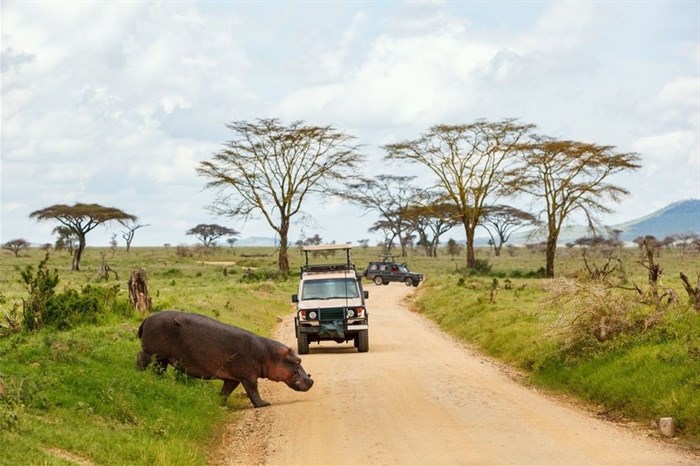Top stories






More news






ESG & Sustainability
#Sona2026: President announces crisis committee to tackle SA's water challenges








Key players say that whereas tour operators usually calculate the prices of package holidays based on the market trends, the country’s policies are inconsistent and have been a driving factor on rate fluctuations.
"The government quite often changes its tax regime with an eye to boost its revenue, little knowing that a move significantly affects the holidays' package price, thus discouraging the number of tourists," said Leopold Kabendera, a local seasoned tourism professional.
Pondering on the National Tourism Policy of 1999 review, organised by the Tanzania Association of Tour Operators (TATO) and the government through USAID PROTECT’s Capacity building project, Kabendera argued that the new policy should guarantee stability on tourism package pricing.
Usaid Protect is currently financing a TATO’s capacity building project in its latest effort to ensure the association becomes a flamboyant advocacy agency for the tourism industry.
"Tourism is a very fragile industry and, therefore, needs a stable policy. Unfortunately, in our country, whenever there’s a new government, policies change and seriously affect the industry," noted Charles Mpanda of Tanganyika Ancient Routes.
In July 2017, Tanzania imposed a Value Added Tax (VAT) on tourist services, pushing the country’s tourism package cost to 25% more than similar offerings from the region.TATO, representing 330 members, warned that the VAT would have worsened the country’s profile as the most expensive destination compared to its rivals with similar allures.
Available data shows that before the VAT, Tanzania was a 7% more costly destination, thanks to multiple taxes facing the $2bn industry. Tour operators in Tanzania are subjected to 32 different taxes, 12 being business registration and regulatory licenses fees as well as 11 duties for each tourist vehicle per annum and 9 others.
TATO’s argument was that whereas tourism is an export, and like other export services qualify for VAT exemption or zero rating, tour operators and travel agencies are "intermediary" services which are normally not subject to VAT.
Additionally, from December 1, 2017, the Ngorongoro Conservation Area Authority (NCAA) enforced the new concession fee of $50 (VAT exclusive) per guest per night paid by hotels, lodges, permanent tented camps, and any tourism accommodation facility inside the respective area.
TATO CEO, Sirili Akko said that it was unfortunate that in Tanzania tourism package prices rise when the demand drops, a clear sign that the public and private sectors are not on the same path. Natural Resources and Tourism Minister, Hamis Kigwangalla, said the issue was among others that have made its way to his docket to overhaul the national tourism policy in order to accommodate local and global changes.
"As a minister responsible for tourism, I have deliberately involved the private sector to get their input so that the blueprint could reflect the current business needs," said Kigwangalla.
In his presentation, the National Tourism Review 1999 Consultant, Samwel Wangwe, said an important factor that contributed to the need for the view of the policy is the government’s commitment to becoming a middle-income country and achieving economic transformation through industrialisation initiatives.
"Tourism being a cross-cutting sector, it requires linkage to and calls for effective coordination with other sectors. Such sectors include: agriculture, manufacturing, transport and communication, finance and trade, and environment and natural resources. Changes made to these sector policies, therefore, need to be considered in the tourism policy," Wangwe told tour operators.
A further compelling reason for review of the NTP 1999 is the new developments in technology such as in communication, transport, and natural resource management as well as training and capacity-building precipitating the need to adapt to those technological changes and adopt them in the tourism sector in data acquisition and information management, facilitating tourists’ access to information and making timely payments.
In addition, the changing tourism marketplace implies the need for innovative products and services to match the expectation and needs of tourists.
Associated with the product innovation, the government has been supporting reforms to improve the business environment for tourism so as to achieve a more competitive tourism industry. "All these efforts will support the need to expand and diversify markets, including promoting domestic tourism. Lastly, a review of the policy should allow for the development of strategies that ensure that tourism in Tanzania is based on international standards and remains highly competitive," explained Wangwe.
Wildlife tourism attracted more than 1 million guests in 2017, earning the country $2.3bn, equivalent to nearly 17.6% of GDP. Additionally, tourism provides 600,000 direct jobs to Tanzanians; over one million people earn an income from tourism.
Tanzania hopes the number of tourist arrivals will hit over 1.2 million this year, up from one million visitors in 2017, earning the economy close to $2.5bn, up from last year’s $2.3bn. According to the five-year marketing blueprint, Tanzania anticipates welcoming 2 million tourists by the close of 2020, boosting the revenue from the current $2bn to nearly $3.8bn.
Read the original article on eTurboNews.